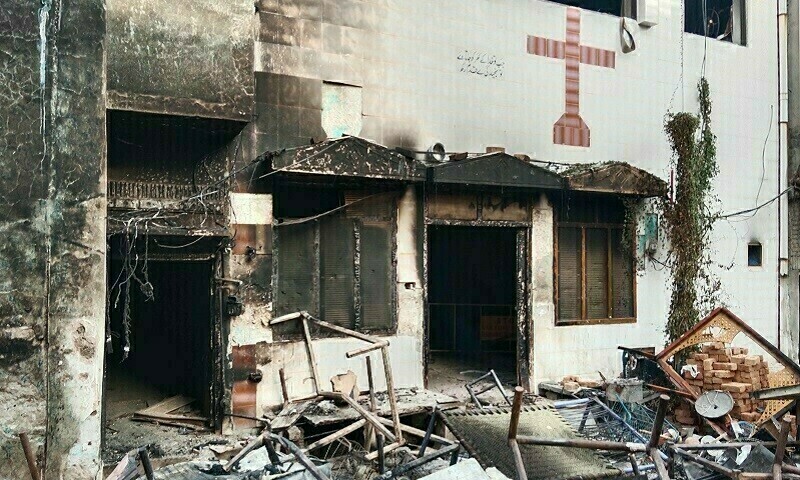On Thursday evening, hundreds of Pakistani Christians demonstrated outside the UN offices, imploring the world body to take quick action to protect Christians from mob violence.
Despite the fact that it was a working day, about 1,000 Christians came from across the US east coast to “show how the mob attacks in Jaranwala have hurt every Christian,” according to James Cyprian, one of the rally’s organizers.
The park outside the UN offices, which is intended for protests and rallies, was packed, and some protestors marched on nearby streets and roads.
On a weekday, such protests usually draw only 100 to 200 people. Protesters requested the UN in a resolution shared with UN officials to convince Pakistan to pass legislation to prevent future atrocities on minorities.
The resolution called for legislation to halt the abuse of blasphemy laws and to put an end to the practice of utilizing blasphemy allegations for personal gain. It also encouraged the UN to fulfill its role in ensuring religious freedom and putting an end to forced conversions.
The Christian leaders who organized Wednesday’s march flew to Washington on Friday to meet with Pakistan’s US envoy, Ambassador Masood Khan.
Earlier, Pakistani Christian leaders spoke at a protest gathering about how an unproven blasphemy claim against two local youths was used as a reason to burn down churches and ransack homes in Jaranwala.
“Even crosses and holy books were not spared,” stated Aron Bashir, a Pennsylvania Republican leader of Pakistani ancestry. “We feel insecure in our own homeland,” Ziba Gill, another Pakistani Christian activist, said. “We are now seeking international protection from the United Nations.”
The speakers also emphasized how Assistant Commissioner of Jaranwala Shaukat Masih was transferred on the same day to satisfy the perpetrators.
Pastors from churches in New York, New Jersey, Pennsylvania, and other states also spoke at the gathering, offering particular prayers for the victims.
Other community leaders spoke during the gathering, expressing worry over an upsurge in attacks on places of worship for minorities in Pakistan, such as churches and temples.
They claimed that extrajudicial actions fueled by blasphemy claims have raised concerns about minorities’ rights to life, liberty, security, and religious freedom enshrined in Pakistan’s constitution.
“Such attacks instill terror and fear among minority communities, further undermining their sense of security and religious harmony,” according to the resolution distributed to UN officials. Protesters requested that a FIR be filed promptly against individuals who inspired the mob violence, and that the incident be investigated by an impartial task force or joint investigation team.
They should also look into the role of law enforcement and their failure to intervene proactively. Protesters demanded that authorities take quick action against all miscreants, including any government officials and/or law enforcement officers discovered to be implicated. Protesters also demanded a comprehensive inquiry into local clerics’ involvement in instigating mob violence, as well as proper legal action against any priest found guilty.
They requested the Punjab government to pay people whose property had been vandalized, stolen, or burned, as well as to rebuild destroyed churches and businesses.















